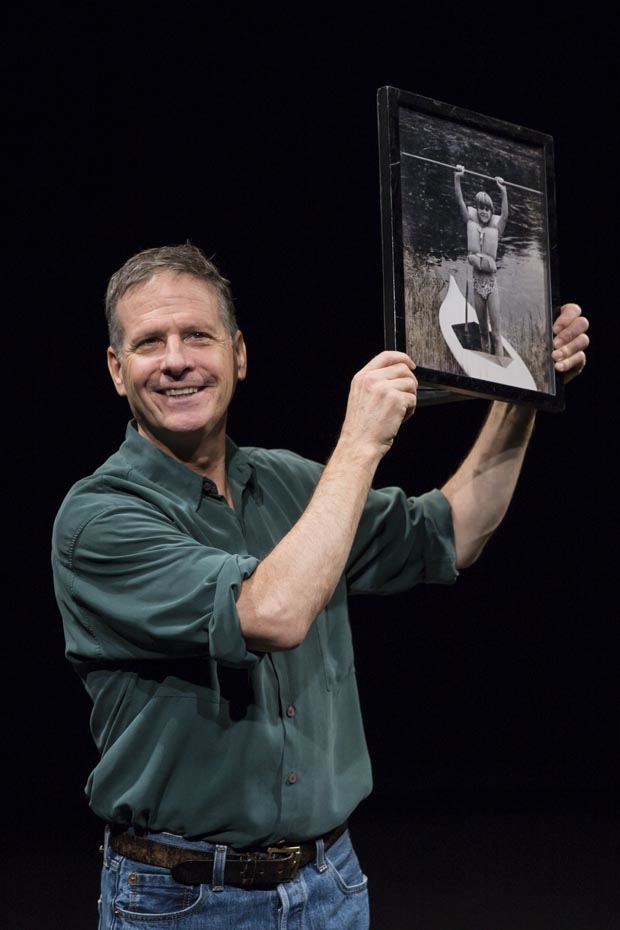Martin Moran Returns to His Landmark Solo Show The Tricky Part

(© Edward T. Morris)
The boy standing in the kayak looks innocent enough. Arms aloft, he holds the oar high over his head. The ear-to-ear grin on this 12-year-old's face betrays no confidences, gives no hints of turmoil. You would never know that on the other side of the camera was a person who'd haunt this young man for the better part of his life.
Martin Moran indelibly created the role of telegraph operator Harold Bride in Titanic. He is a past Sir Robin in Spamalot, and he recently finished a run as Dr. Dillamond in Wicked. In fact, all of his Broadway credits are musicals, and most of his off-Broadway ones are, too. It's his 2004 play The Tricky Part that burns brightest in people's memories, though, an absolutely tremendous solo show that has practically become lore in certain circles.
The Tricky Part has returned to New York for the first time in 14 years, once again directed by Seth Barrish at the Barrow Group. Moran was 44 when he first performed the piece, now he's weeks shy of 59. The passage of time brings additional wisdom, and this revival finds Moran fearlessly interrogating his own work in an effort to dig even deeper. It's a frank, shocking, and beautifully sincere look at the psyche of a child on the cusp of adulthood, the older man who took advantage, and the difficulty of healing deep wounds.
When Moran was 12, he began a three-year sexual relationship with Bob, a 30-year-old camp counselor who later went to prison. The experience would weigh on the rest of Moran's life, even as he became a successful actor. In 2002, Moran decided to track Bob down, finding his sixtysomething abuser in a Los Angeles VA hospital, a shell of what he once was. With their confrontation, Moran's intention was to close that chapter of his life once and for all. It was not so easy.
Obviously, The Tricky Part is heavy stuff, especially as Moran details the more repugnant aspects of his relationship with Bob. But as he points out in his preface to the published script, "the play is an inquiry, not a confession." That is to say, Moran is not bearing his soul as a brutal session of theater therapy. Instead, he's exquisitely probing the paradoxes of human existence, examining hate and forgiveness, terror and appreciation, and the possibility of those feelings being inextricably linked.
He does so with disarming humor. This deeply funny piece stays lighthearted even while eliciting gasps from the audience. When Moran recounts his experiences from a journal, designer Elizabeth Mak illuminates only his face in a halo of light, as though we're seated around a campfire listening to a story so engrained within him that we can almost see through the words to his soul. It is mesmerizing and unforgettably heartbreaking.
In that way, The Tricky Part is more than a play. It transcends the boundaries of the fourth wall, shifting from an actor-to-audience performance to a person-to-person encounter. It is as deep and connected an experience as we can have in the theater, and the really tricky part is not thinking about it long after Moran takes his final bow.










